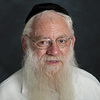Furthermore, I believe that these skills can be taught without sacrificing too much of the material a teacher is meant to cover. Really only minor but very meaningful modifications in a teacher's approach are necessary.
If age-appropriate questions are given to the child in the early grades, if appropriate and constructive feedback is provided, the child can develop proper "habits of thought" without great difficulty.
Let us now look at some ways in which teachers at the earliest grades can begin to teach their children how to think.
For example, at the very earliest level, when the "Alef-Bais" is taught, why must the teacher tell the child the name of each letter? Why not give the child three letters (such as alef, bais and gimel), two of which
he's already learned (alef and bais) and ask him to "find" the gimel — a simple inference task.
Why, also, is it necessary for children learning how to read to be faced always with reading what we place in front of then? Why not exercise their brains by giving them the opportunity to create words on their own (by writing them or by using rubber stamps or stickers)? Having the child create his own words (in whatever language) and giving him feedback on whether they are phonetically correct can be a great way to involve the child's mind.
When we get to translating Chumash, instead of then giving the child matching tasks in which he has to use his memory only to match Hebrew words with their translations, why not also give him words which he has not yet met, but whose precise meaning he can figure out from the information we do give him?
Thus, for example, a child who has learned the first two p'sukim of Beraishis might be given the following matching task:
The heavens v'ha'aretz
The Earth hashomayim
And the earth v'hashomayim
And the heaven sha'aretz
If age-appropriate questions are given to the child in the early grades, if appropriate and constructive feedback is provided, the child can develop proper "habits of thought" without great difficulty.
Let us now look at some ways in which teachers at the earliest grades can begin to teach their children how to think.
For example, at the very earliest level, when the "Alef-Bais" is taught, why must the teacher tell the child the name of each letter? Why not give the child three letters (such as alef, bais and gimel), two of which
he's already learned (alef and bais) and ask him to "find" the gimel — a simple inference task.
Why, also, is it necessary for children learning how to read to be faced always with reading what we place in front of then? Why not exercise their brains by giving them the opportunity to create words on their own (by writing them or by using rubber stamps or stickers)? Having the child create his own words (in whatever language) and giving him feedback on whether they are phonetically correct can be a great way to involve the child's mind.
When we get to translating Chumash, instead of then giving the child matching tasks in which he has to use his memory only to match Hebrew words with their translations, why not also give him words which he has not yet met, but whose precise meaning he can figure out from the information we do give him?
Thus, for example, a child who has learned the first two p'sukim of Beraishis might be given the following matching task:
The heavens v'ha'aretz
The Earth hashomayim
And the earth v'hashomayim
And the heaven sha'aretz
learn to make deductions and inferences. Because much of what they will be dealing with in Judaic studies is textual, our students must learn how to extract information from text, make inferences from text, understand the structure of the text, pick up on anomalies in the text. and make inferences from those anomalies. They also need to learn to deal with questions of "What if the pasuk had said ... then what would it have meant.. .?" an often very difficult task for children, albeit a very basic one for learning Chumash with Rashi and Gemara.
108 / THE JEWISH ACTION READER

